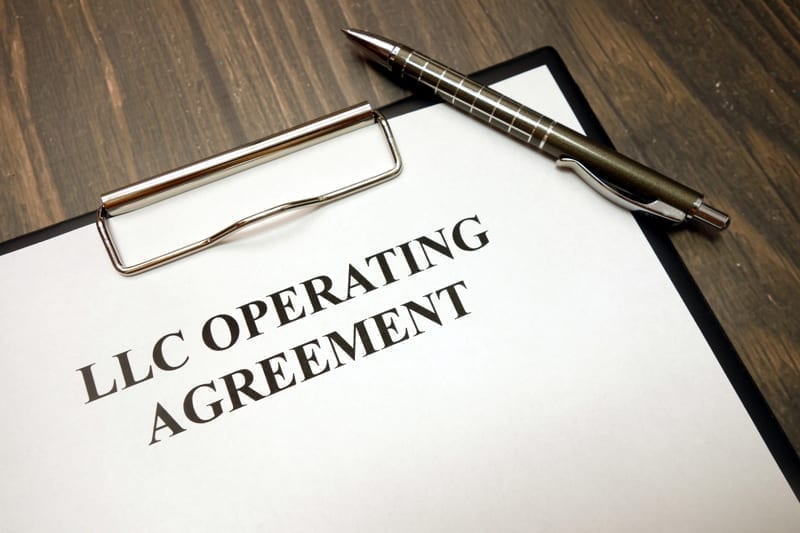The question I get more than any other is to do with structures.
At every conference we host and in my email every day I’m asked again and again: “What structure should I use?”
Sometimes people come up to me at conferences with file folders in their hands.
“I just came back from a vacation in Panama… or Nevis… or the British Virgin Islands,” they tell me. They’re smiling. They’ve got nice suntans. And they’ve got these file folders…
“While I was there,” they continue, “I set up this corporation. Now I’m wondering,” they say, “what should I do with it?”
I give them the only answer I can, which is: I have no idea.
In almost every one of these cases, the person set up the structure because he thought it was a cool thing to do or somebody told him it was something he ought to do. His golf buddy at the country club has an offshore corporation, and he thinks he needs one, too.
That’s completely backwards.
This should work the other way around.
You should start with a purpose. Have a goal in mind first, then go out and find the structure and the jurisdiction that serve that purpose.
Which gets to the real question:
Why would anyone want an offshore entity?
One of the most common reasons to establish a foreign entity is because you’re buying a piece of property overseas. A foreign entity can be the best way to take title.
I’ve bought real estate in 25 countries, and I own property right now in more than a dozen. Each purchase has been handled differently. Sometimes I’ve taken title in my own name, sometimes I’ve formed an entity to take title.
Sometimes I use the same entity to hold a second or third piece of property… sometimes when making a new purchase I form a new entity.
Why make it so complicated? In fact, my objective is to simplify.
However, I’m always balancing simple against two other overriding agendas—mitigating taxes and planning for probate.
The piece of property Kathleen and I own in Croatia, for example, is held in our own name. This is for tax purposes. You have no capital gains tax liability in Croatia when you sell real estate you’ve owned for three years or longer, as long as the property has been held in your name.
If it’s been held in an entity, you are liable for capital gains tax whenever you sell.
In other cases, holding a piece of property in an entity is the best choice for local asset protection or local probate. Again, it depends. There’s no one-size fits-all structure strategy.
Moreover, not only is there generally more than one right way to structure your holdings, but there are also, in every case, wrong ways.
In thinking this through for any particular property purchase, remember the competing agendas. The real estate agent’s agenda is straightforward. He wants to close the deal. So he’ll recommend the quickest-possible way to take title. That won’t necessarily be the best way for you. What makes sense for you is the strategy that balances tax liabilities with estate-planning and asset-protection benefits.
Start by assuming that maybe you don’t need a structure at all.
I have a great story to help make this point that I’ve been writing about for so long that the woman whose story it is got in touch at some point to say that she was going to start charging me a royalty every time I retold her story.
She was kidding, I think, so here goes…
Years ago, this woman made a trip to Panama because her friends told her she should check it out. Her friends also told her that she needed a Panama corporation… that she “had to have” a Panama corporation. So, when she traveled to Panama for vacation, she set up a Panama corporation.
I met her three or four years later at a conference. Her first question to me was, “What should I do with this Panama corporation I set up four years ago?”
“Dump it,” I told her after talking through her current situation. She had no need for a Panama corporation and never had. Why pay the annual fees to keep it current? There was no point.
Which is why, again, I say: Start with the goal.
Have an objective in mind and then set out to find the structure and the jurisdiction that meet it. Don’t put the cart before the horse.
And try to think long term.
It’s hard when you’re starting out, and harder, too, the younger you are. With decades of living and investing ahead of you, how can you predict objectives or challenges? You can’t really, so you have to stick with the very big picture.
Start by having a conversation with yourself, your spouse if you have one, and your attorney. Talk through what you’re most concerned about, what you’re trying to avoid, and what you’re trying to build. Are your heirs a priority? Or is your priority a concern over someone slipping on the stairs in one of your rental properties and suing you for everything they can get their hands on?
Try to think as much of this through as you can from the starting line, especially when forming entities to hold property you’re purchasing overseas. It’s possible to retitle a piece of property, into the name of another or a new entity, but retitling comes at a cost. Transfer fees can range from 1% to 10%. It’s not as simple to retitle property overseas as it can be in the United States. And it definitely can get expensive…
Lief Simon
Editor, Offshore Living Letter










